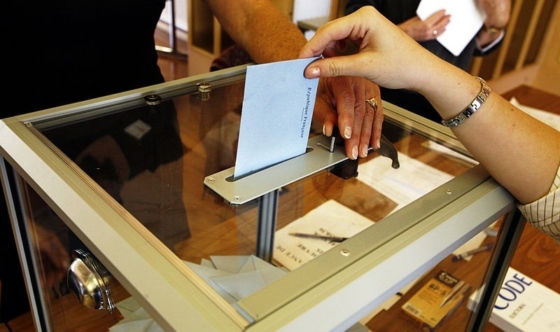The Nationalism of Cristina Fernández de Kirchner
Argentine President Cristina Fernández has increased her appeals to nationalist sentiment to build domestic political support.
Presidential elections in Argentina are only two days away. Normally, so close to the actual voting day, several polls and analysis have determined voters’ preferences and singled out a clear winner for the first electoral round. This is not the case for Argentina. A climate of uncertainty in Argentina’s electoral results and the future administration remains present—but perhaps does not pose—a negative impact for the country. On December 10th, when the next president takes office, it will mark the end of 13 years of controversial Kirchner-led governments. The next administration’s agenda will be set with several political and economic challenges that will test the endurance of the democratic regime that has reigned in Argentinian politics.
On October 21, 2015 Fernando Straface, Julia Pomares, and Lucio Castro from the Center of the Implementation of Public Policies Promoting Equity and Growth (CIPPEC) joined Ernesto Calvo from the University of Maryland at the Inter-American Dialogue to comment on the various aspects of post-election scenarios in Argentina. Michael Shifter, president of the Dialogue, moderated the event.
Fernando Straface started the discussion stating the level of uncertainty for the presidential election and the fact that current polls do not point to a conclusive result. This level of uncertainty, as explained by Straface, shows a degree of vitality in the democratic competition in Argentina. It further challenges a tendency of incumbency in power that has become traditional in certain Argentinian provinces and some countries in Latin America. Straface also presented five important aspects to take into consideration with regards to this election:
Straface also predicted this election would proceed fairly normally and fairly, without major disruption or irregularities. While lower-level electoral authorities are weaker and more inconsistent, for example what happened in the provincial elections in Tucumán, the central electoral authorities are currently in good shape. There is the possibility that the system suffers stress—especially if the final results are tight—but this will only account to some delays in the overall result.
Julia Pomares followed the discussion along the line of the research that CIPPEC has done for the current elections. After tracking more than 50 polls on this matter, Pomares showed the audience the current parts of the ‘puzzle’ for this election:
Pomares also argued for institutional reform in Argentina. She pointed out momentum for a new political reform following the one enacted in 2009 that had positive impacts. Some of the characteristics of the political system such as the voting system are part of an agenda that needs structural adjustments. This reform, however, is highly aspirational. For Pomares, there is a window of opportunity because of the major coverage in the media. She thinks that the constitution guarantees political rights and gives profound autonomy for the provinces and that this has created some tension for the country. For Pomares, this is the moment to solve that tension and guarantee political rights in the same way throughout the country.
Later on, Lucio Castro discussed the economic outlook for Argentina after this election. Following the American premise of the good, the bad, and the ugly, Castro made several arguments regarding Argentina’s economy.
As for the outlook into 2016, Castro thinks it depends on the actions of the new administration. However, he argued that whoever wins the election would face severe financial requirements, particularly a need for up to $45 billion in new financing. Regardless of who wins, the next president will have to find new paths to growth for Argentina. In this regard, Castro presented some policy options:
Castro also mentioned that Argentina often tends to look at the future, but still has to focus on present challenges. In particular, Castro considered that a development agenda is missing in Argentina. Nevertheless, Castro also highlighted Argentina’s position in Latin America. Argentina exports commodities to the world and manufactured goods to Latin America, the combination securing a good position for the country in the international market. However, Castro argued for a reevaluation of the bilateral economic relationship between Argentina and Brazil directly, and not as a part Mercosur. There is the need for an active and aggressive policy in the foreign market. In Castro’s view, Mercosur and Argentina have been absent on many negotiations, which is why it is important that Argentina opens its market to different products.
Comments by Ernesto Calvo singled out the incredible amount of consensus in Argentina. Continuity on voters with more Peronist views is a characteristic feature of this election. In regards to the top contenders in the election race, Calvo argued that Mauricio Macri is not completely without support in congress but he does not hold a wide margin to maneuver. Macri will likely have 15% of the congress with three senators. On the other hand, Daniel Scioli is not a traditional Peronist. Calvo called Scioli an unwanted son of Néstor and Cristina Kirchner and characterized him as a centrist and classic type of Peronist. For Calvo, this election will be very aggressive but will come with no major surprises.
Argentine President Cristina Fernández has increased her appeals to nationalist sentiment to build domestic political support.
Argentina’s economic woes, as well as the president’s health problems, have raised a number of questions about its political situation.
What sort of central bank will Vanoli run? How will Argentina’s long-brewing currency woes play out?
 Marcos Ferreira / Flickr / CC BY-SA 2.0
Marcos Ferreira / Flickr / CC BY-SA 2.0

